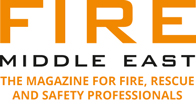23 Dec A unified and global approach
Fire is something that ignores boundaries, does not care about money, and has destructive and potentially life-threatening impacts. We have seen building fires and disasters in recent years sending shockwaves across the world writes gary strong, Global Building Standards Director Fire Safety Lead, RICS and Chair of the IFSS Coalition.
There are currently many contrasting global approaches and policy requirements in managing fire safety in real estate, land and infrastructure with differing approaches in most locations. This is despite rapid globalisation meaning professionals such as those regulated by RICS are operating cross markets to global professional standards. These disconnects we see in approach, and the resulting lack of skills and expertise transference, are ultimately slowing down the process of improving the fire safety of the world’s built assets.
As an industry we have taken note and convened, and in 2018 RICS formed a group called The International Fire Safety Standards (IFSS) Coalition, of over 80 global organisations in uniting to address the difference and work towards a global approach to this issue.
With an aim of reducing the risk from fire, we as a group, have provided universal rules, known as the Common Principles, that classify and define fire safety standards at project, state, national, regional and international levels. These principles – of which there are five – have been developed so that they are universally applicable throughout the world, regardless of the existing codes, standards and guidance already in place. They will help build trust and confidence amongst those who operate in the built environment.
The Common Principles were our first step and received backing from the UN in November 2020 and they are now being applied globally by companies, organisations and experts who are embedding them into their standards, guidance and practice. All our coalition members are also both working to and seeking further adoption of the common principles, which will help protect people, buildings, contents, and the environment, from the destructive effects of fire.
Tackling fire safety in a space of rapid urbanisation, growing populations and aging infrastructure isn’t going to be easy; a cultural shift never is. Whilst time is not necessarily on our side, globally we have to make the shift and reduce the numbers of fire fatalities and people displaced by fire.
There has been a need for greater consistency for a long time. Whilst we as an industry are stepping up to try and tackle this issue, the unified approach seen across governments in attempts to tackle big issues like climate change need to be applied to fire safety and by implication, aspects of building safety. There is a need for a common understanding of building design, construction and management and the impact that fire can have on these.
In addition to the Common Principles, we as a coalition also knew we needed to develop a framework approach that would provide a workable way of working for countries to adopt, regardless of their wealth. We knew we needed to provide suggested actions and timelines, that could be easily adopted, by governments, organisations, businesses or communities, which would encourage global political commitments to addressing fire safety head on.
When the coalition was looking for the best solution, we decided to adopt ‘a Decade of Action’ as it is a proven framework that has caused significant behaviour change elsewhere, such as the UN adopted Decade of Action for Road Safety. The resulting and recently published Decade of Action for Fire Safety 2022- 2032 is that unified approach on how to improve standards across the sector.
By sharing the knowledge and expertise from the coalition, the Decade of Action plan provides a way for the world to step up and develop sustainable strategies and programmes that can be implemented globally, from institutions to individuals.
We’ve also aligned the Decade of Action with the UN Sustainable Development Goals. The strategies within the Decade of Action plan, set out how to improve education, resources and training on fire and it is also split into five pillars to engage with everyone, not just policy makers. Addressing people, products, structures, infrastructure and communities the Decade of Action is the blueprint to restore more confidence in the built environment when it comes to fire safety.
From the International Fire Safety Standards Coalition and I, this is an urgent call for Governments and organisations
to adopt our Common Principles and engage with our Decade of Action. This will safeguard people and property and will reduce the economic and environmental cost fire can have on our planet. Decade of Action for Fire Safety 2022-2032 can be accessed here rics.org/globalassets/rics-website/media/knowledge/decade-of-action-for-fire-safety_oct2021.pdf






